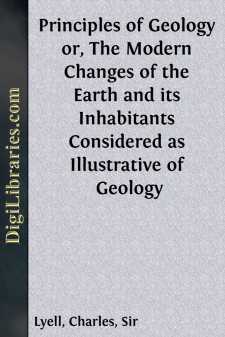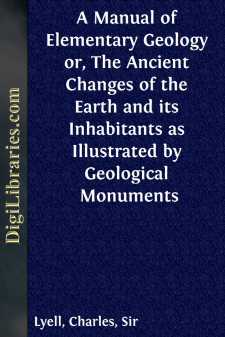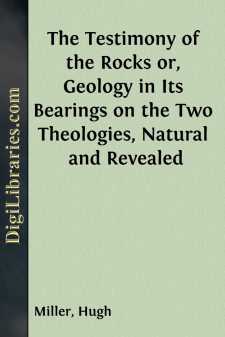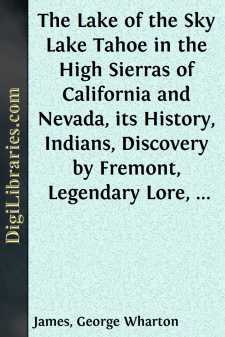Categories
- Antiques & Collectibles 13
- Architecture 36
- Art 48
- Bibles 22
- Biography & Autobiography 813
- Body, Mind & Spirit 142
- Business & Economics 28
- Children's Books 17
- Children's Fiction 14
- Computers 4
- Cooking 94
- Crafts & Hobbies 4
- Drama 346
- Education 46
- Family & Relationships 57
- Fiction 11829
- Games 19
- Gardening 17
- Health & Fitness 34
- History 1377
- House & Home 1
- Humor 147
- Juvenile Fiction 1873
- Juvenile Nonfiction 202
- Language Arts & Disciplines 88
- Law 16
- Literary Collections 686
- Literary Criticism 179
- Mathematics 13
- Medical 41
- Music 40
- Nature 179
- Non-Classifiable 1768
- Performing Arts 7
- Periodicals 1453
- Philosophy 64
- Photography 2
- Poetry 896
- Political Science 203
- Psychology 42
- Reference 154
- Religion 513
- Science 126
- Self-Help 84
- Social Science 81
- Sports & Recreation 34
- Study Aids 3
- Technology & Engineering 59
- Transportation 23
- Travel 463
- True Crime 29
Principles of Geology or, The Modern Changes of the Earth and its Inhabitants Considered as Illustrative of Geology
by: Charles Lyell
Description:
Excerpt
CHAPTER I.
Geology defined—Compared to History—Its relation to other Physical Sciences—Not to be confounded with Cosmogony.
Geology is the science which investigates the successive changes that have taken place in the organic and inorganic kingdoms of nature; it inquires into the causes of these changes, and the influence which they have exerted in modifying the surface and external structure of our planet.
By these researches into the state of the earth and its inhabitants at former periods, we acquire a more perfect knowledge of its present condition, and more comprehensive views concerning the laws now governing its animate and inanimate productions. When we study history, we obtain a more profound insight into human nature, by instituting a comparison between the present and former states of society. We trace the long series of events which have gradually led to the actual posture of affairs; and by connecting effects with their causes, we are enabled to classify and retain in the memory a multitude of complicated relations—the various peculiarities of national character—the different degrees of moral and intellectual refinement, and numerous other circumstances, which, without historical associations, would be uninteresting or imperfectly understood. As the present condition of nations is the result of many antecedent changes, some extremely remote, and others recent, some gradual, others sudden and violent; so the state, of the natural world is the result of a long succession of events; and if we would enlarge our experience of the present economy of nature, we must investigate the effects of her operations in former epochs.
We often discover with surprise, on looking back into the chronicles of nations, how the fortune of some battle has influenced the fate of millions of our contemporaries, when it has long been forgotten by the mass of the population. With this remote event we may find inseparably connected the geographical boundaries of a great state, the language now spoken by the inhabitants, their peculiar manners, laws, and religious opinions. But far more astonishing and unexpected are the connections brought to light, when we carry back our researches into the history of nature. The form of a coast, the configuration of the interior of a country, the existence and extent of lakes, valleys, and mountains, can often be traced to the former prevalence of earthquakes and volcanoes in regions which have long been undisturbed. To these remote convulsions the present fertility of some districts, the sterile character of others, the elevation of land above the sea, the climate, and various peculiarities, may be distinctly referred. On the other hand, many distinguishing features of the surface may often be ascribed to the operation, at a remote era, of slow and tranquil causes—to the gradual deposition of sediment in a lake or in the ocean, or to the prolific increase of testacea and corals.
To select another example, we find in certain localities subterranean deposits of coal, consisting of vegetable matter, formerly drifted into seas and lakes....







